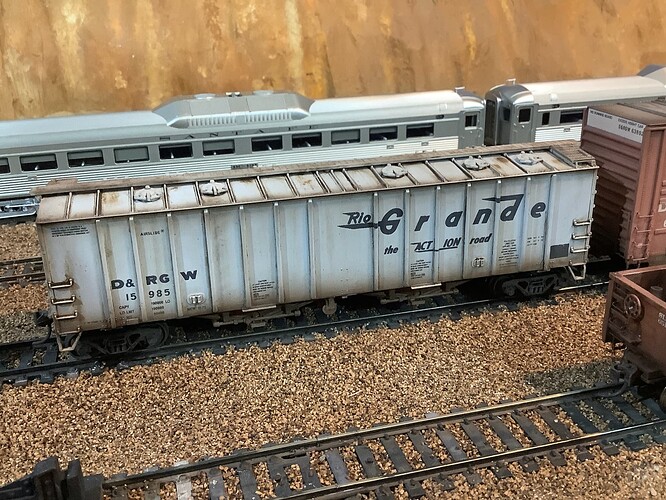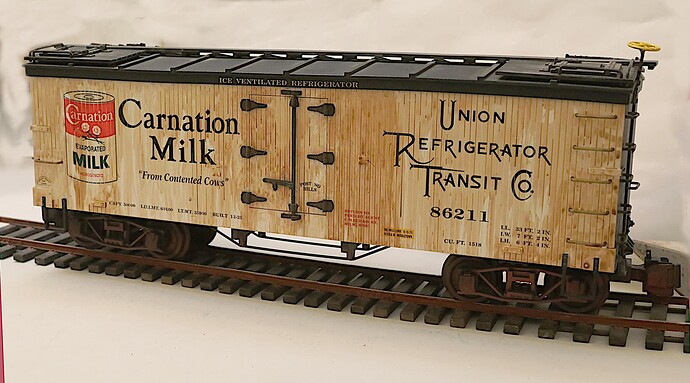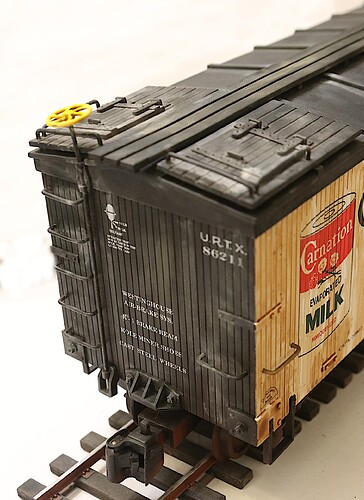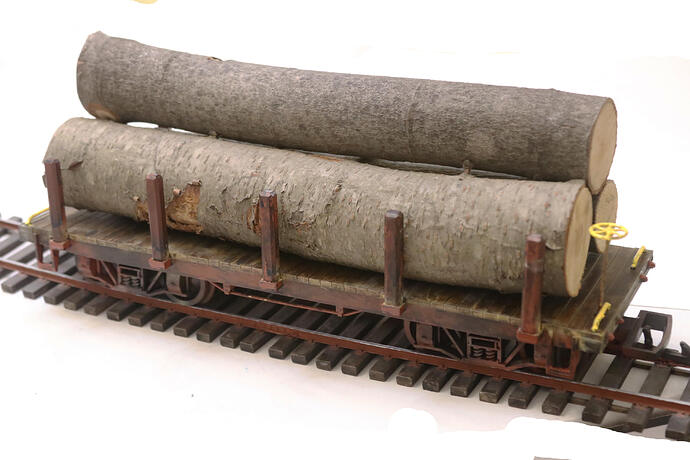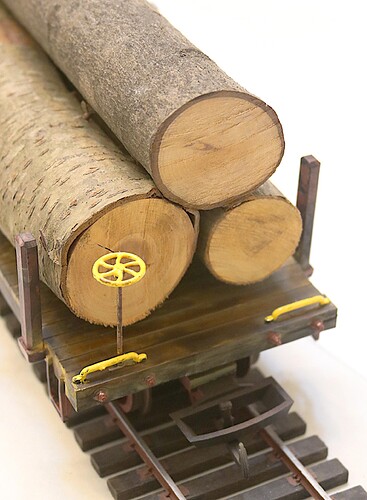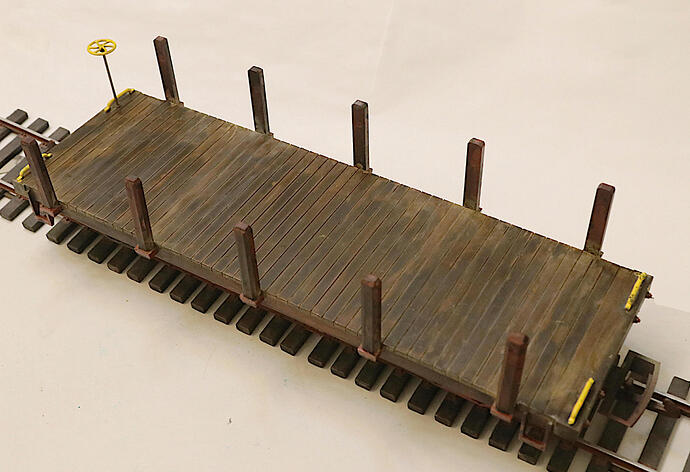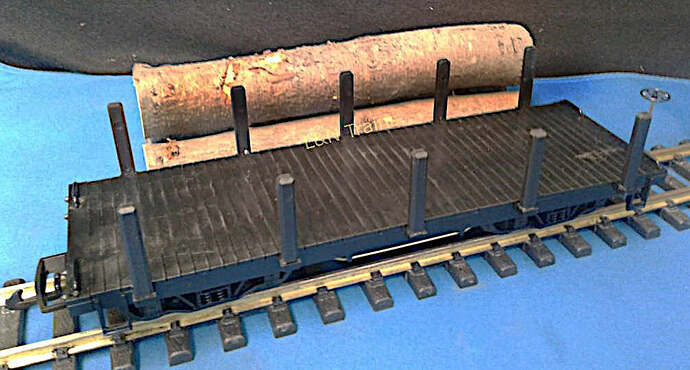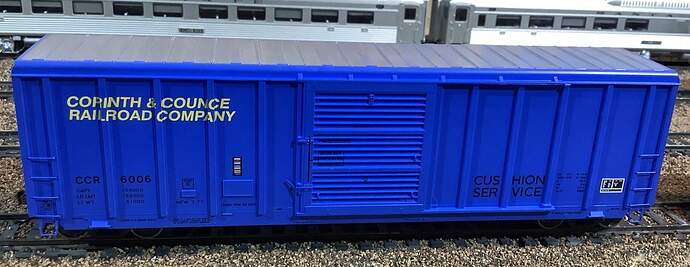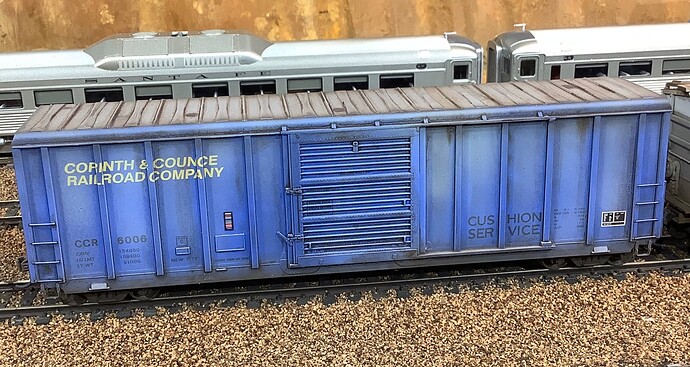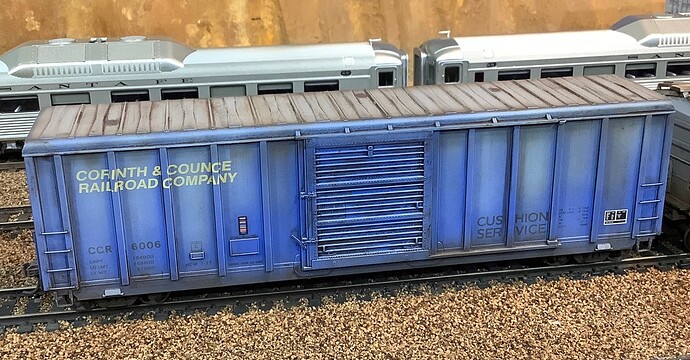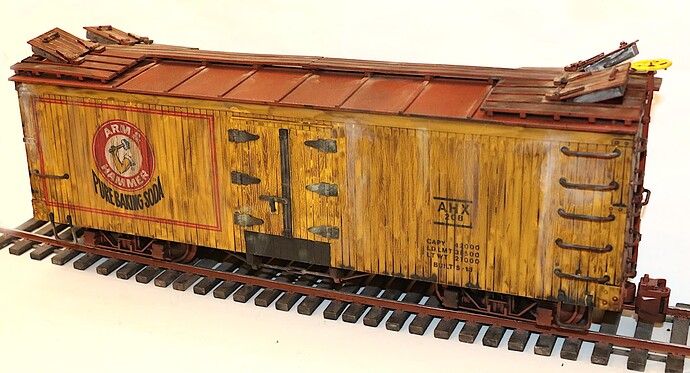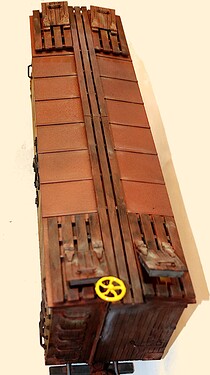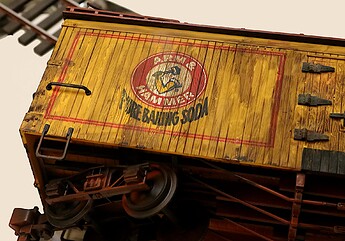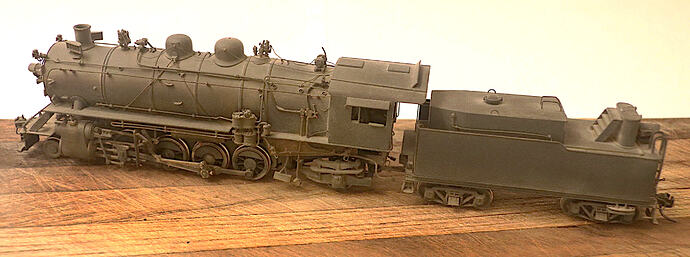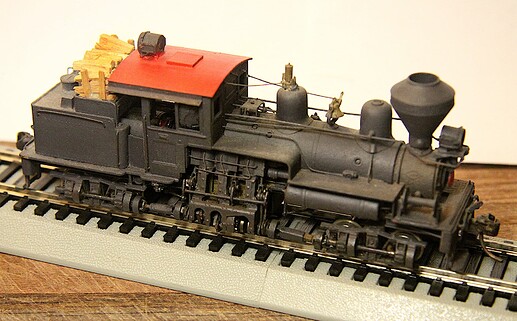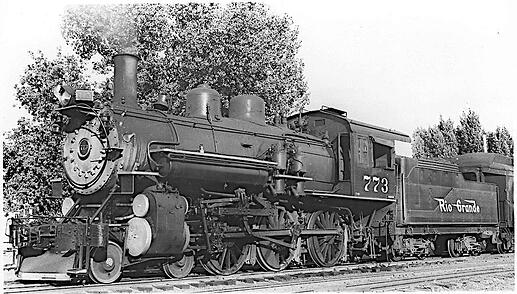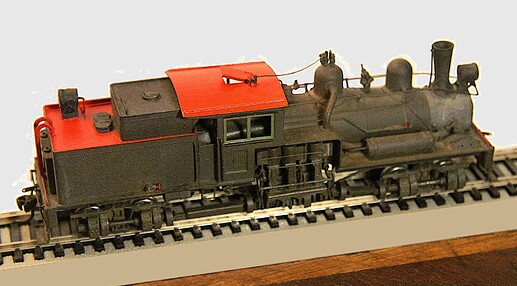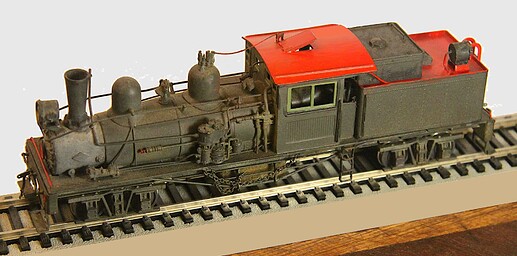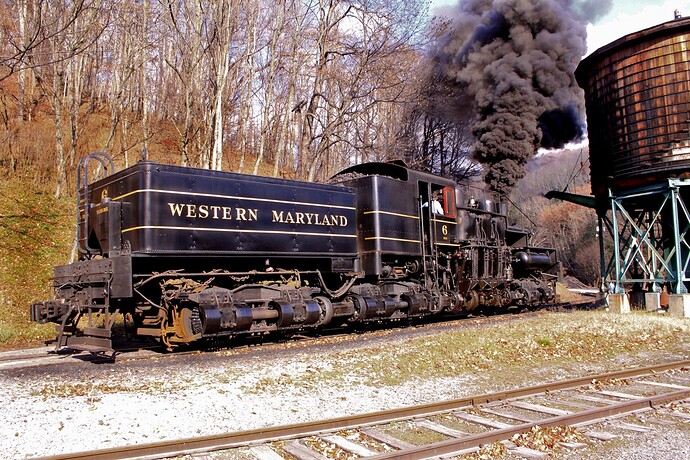This HO Walthers Airslide Hopper in D&RGW livery…
Looking good and grimy ![]()
Welcome oh master of weathering!
Thanks for bringing us more of your work.
Master…LOL
Looks great; oils and weathering powder?
Lou
Hi Lou,
Thanks…fun times with these
Tamiya paints…Winsor and Newton oils…
no powders…mostly because I don’t have powders…
Nicely done, Tamiya is my go to paint as well.
Me Too! (As in Started Weathering Cars Again!)
I too just finished the two cars shown below just yesterday. This was after a bit of a hiatus away from model railroading. I hope you don’t mind me jumping is here but my current work fits your thread title to a “T”.
Some might think this a bit over the top:
A very weathered G Scale, Aristo-Craft, Woodside Carnation Reefer
FYI ~ The 'how to" is over at:
Wow, the effects are remarkable.
About the blending of the two threads, which renders my next statement incomprehensible, especially with the removal of everything leading up to it - another bet with myself won! Some people just can’t help themselves…
Regarding the “mysterious” title to the now “disappeared” thread:
Anything related to railroad modeling is somewhat rare here, so the tag pretty much gives it away. As a railroad guy I say lemme check this out.
Stalin would be proud.
Excellent job on the weathering by the way.
Looks like a lot of creosote on that flat card decking. Those ties shouldn’t rot for a while. Looks nice job. I’m curious about the logs, did they come with the kit or if they something that you scrounged and cut?
This is the fourth such car i have had pass through my hands and they have all had these very “natural” (actually real) looking log sets right from the manufacture.
Dave; Could you please post some links to your earlier threads on car weathering.
I would love to learn more about your “how to”!
Practice Weathering: Part I
Practice Weathering: Part II
Don’t let the title fool you ~ There is some great structure and rolling stock
weathering in this one as well!
Mike, thank you for finding and posting these.
I think I may be done torturing Woodside Reefers for a while.
This time a Bachmann “Big Hauler,” Arm & Hammer Reefer.
I like that this one has working ice hatches!
Brass HO Southern Pacific Mikado: Brush painted in grimy black, clear coated matte with rattle can then light dust weathering with soft pastels.
“Most working black locomotives aren’t black. Besides these lighter gray shades can be better seen with what I often call our tendency towards ‘high noon’ layout lighting.” (Meaning Light coming almost directly from above.)
.
Similar treatment on PFM 25 ton Cowhatchen Shay in HO:
This 25 ton-er lost its’ steam generator somewhere along the way. I just yesterday found a Cal-Scale brass replacement for it!
.
Example Photo: Photo credit unknown
I would ask; In this high noon photo shown below is there any portion of this locomotive that actually appears solid black? Save for the deep shadows under the air tank and cab as well as parts of the oily running gear.
Model layout illumination is usually way too dim to produce this degree of “real world” deep contrast, so perhaps we need to help it along in our painting?
Your brain knows the entire locomotive is painted the same shade of black but that it not how your eye perceives it in real life. And that is also not how you perceive the light rays as they play across the black surface when viewed from just the right angle. (Example: the almost white vertical band of light on the sand dome.)
And yet again with a kit-bashed (former PFM B-3 Shay)
Now a 60 ton 2 truck engine.
Perhaps a just washed (still wet) steamer off the New York Central’s crack 20th Century Limited passenger train might be black for a few miles but as to the general hard working yard, freight and back-woods steam locomotives not so much!
Here is a picture of a REALLY clean tourist locomotive and even its’ lower surfaces have already gotten “dusted up” with road grime, oil and “rust dust.”
Photo by the author ~ All Rights Reserved
